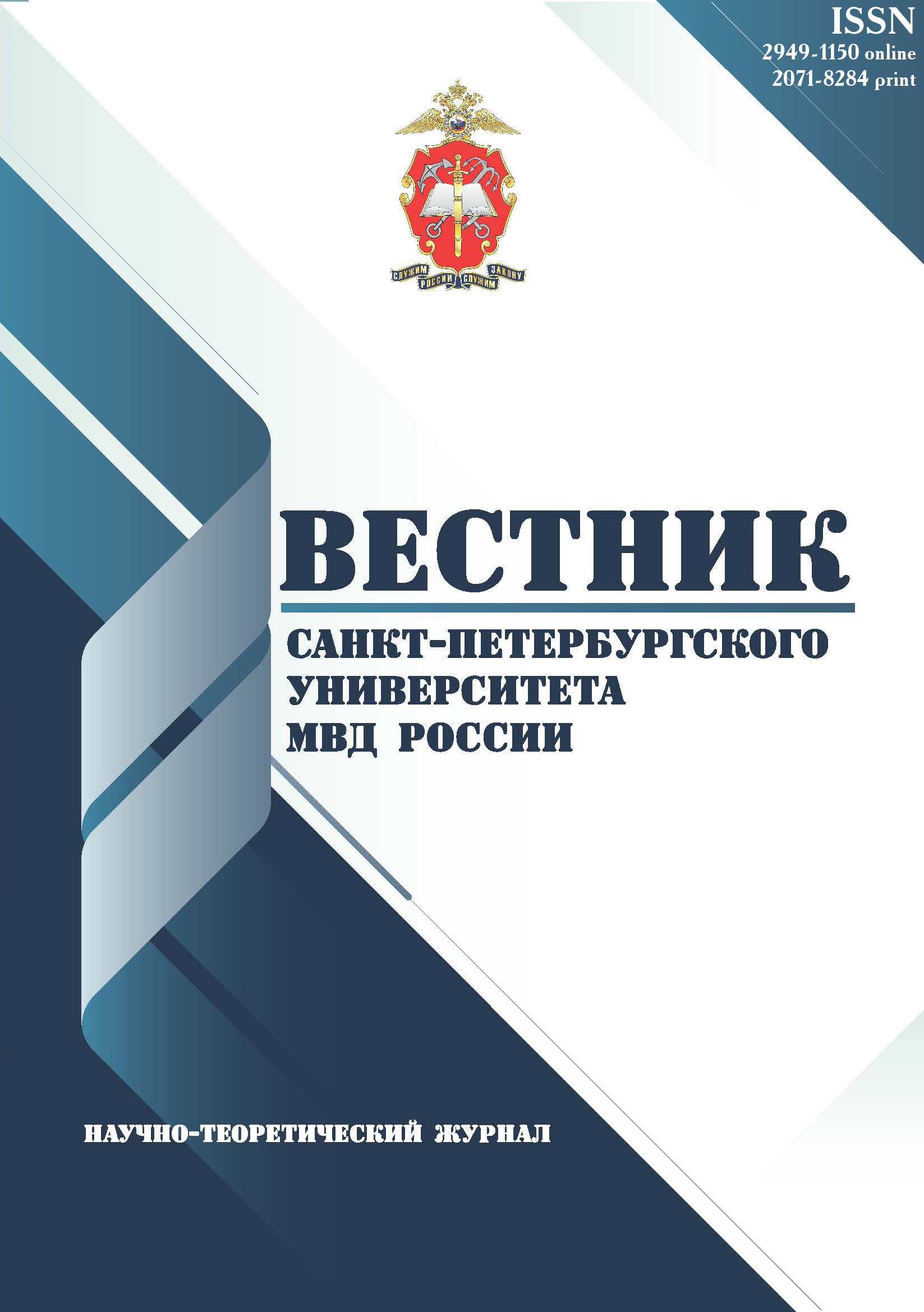Military Educational and Scientific Centre of the Air Force «Professor N.E. Zhukovsky and Y.A. Gagarin Air Force Academy»
Novokuznetsk, Russian Federation
UDC 159.9.072
Introduction. The study aims to investigate the personal characteristics of selfregulation of convicted women behaviour serving sentences in places of liberty deprivation. The complex of personal characteristics of women with different levels of self-regulation is analysed, as well as the prevailing styles of behaviour control and self-management of convicted prisoners serving criminal sentences in places of liberty deprivation. Hypothesis of the study is the assumption that during serving a sentence the convicted women behaviour differs in the level of self-regulation; the personality characteristics of the convicted people influence the realisation of the specific style of behaviour of women in correction facilities. The sample of the study was made up of 328 convicted women aged 25-35 years serving criminal sentences. Methods: theoretical (analysis, synthesis and generalisation of information), empirical (psycho-diagnostic testing). The methodical techniques used in the study: “Style of self-regulation of behaviour - SSP-98” (V. I. Morosanova) and “Individualtypological questionnaire” (L. N. Sobchik). Results. Reliable differences in the display of the personality characteristics of female convicts with different levels of self-regulation were revealed. It was proved that convicted women with low self-regulatory index have such personality characteristics as aggressiveness, introversion, spontaneity, sensitivity, labiality. This complex of personality manifestations corresponds to a hypogenic type of behaviour. Women with a medium level of self-regulation, who are serving criminal sentences in correctional institutions, have rigidity, spontaneity and introversion, that determine hyperstenic type of behaviour. In the group of convicted with low level of self-regulation programming and flexibility of control styles and behaviour management are mostly expressed. Women with a medium self-regulatory rate prefer flexibility and programming in the behavioural strategies implementation when serving sentences for criminal offences.
personality traits, self-regulation, selfregulation styles, self-regulation of behaviour, styles of behaviour selfregulation, convicted women
1. Gunzunova B. A. Teoreticheskie podhody k issledovaniyu samoregulyacii proizvol'noy aktivnosti sub'ekta deyatel'nosti // Vestnik Buryatskogo gosudarstvennogo universiteta. Obrazovanie. Lichnost'. Obschestvo. 2010. № 5. S. 3–7.
2. Abul'hanova-Slavskaya K. A. Strategii zhizni. Moskva : Mysl', 1991. 299 s.
3. Morosanova V. I. Osoznannaya samoregulyaciya kak metaresurs dostizheniya celey i razresheniya problem zhiznedeyatel'nosti // Vestnik Moskovskogo universiteta. Seriya 14 «Psihologiya». 2021. № 1. S. 3–37. https://doi.org/10.11621/vsp.2021.01.01.
4. Morosanova V. I. Individual'nye osobennosti osoznannoy samoregulyacii proizvol'noy aktivnosti cheloveka // Vestnik Moskovskogo universiteta. Seriya 14 «Psihologiya». 2010. № 1. S. 36–45.
5. Mihaylov A. E., Tarakanov I. A. Zhenskaya prestupnost': sovremennoe sostoyanie i tendencii // Uchenye zapiski. 2020. № 2 (34). S. 99–103.
6. Antonyan Yu. M. Prestupnost' sredi zhenschin. Moskva : Rossiyskoe pravo, 1992. 252 s.
7. Morosanova V. I. Stilevye osobennosti samoregulyacii lichnosti // Voprosy psihologii. 1991. № 1. S. 118–127.
8. Sobchik L. N. Psihologiya individual'nosti : Teoriya i praktika psihodiagnostiki. Sankt-Peterburg : Rech', 2008. 624 s.
9. Konopleva I. N., Knyazeva S. O., Debol'skiy M. G., Krasnenkova S. A. Osobennosti samoregulyacii u osuzhdennyh, sovershivshih prestupleniya pri recidive // Psihologiya i pravo. 2022. T. 12, № 2. S. 27–41. https://doi.org/10.17759/psylaw.2022120203.
10. Sobchik L. N. Individual'no-tipologicheskiy oprosnik : prakticheskoe rukovodstvo k tradicionnomu i komp'yuternomu variantam testa. Moskva : Kompaniya Borges, 2010. 59 s.
11. Pevneva A. N. Strukturnaya organizaciya emocional'nogo komponenta rigidnosti // Zhurnal Belorusskogo gosudarstvennogo universiteta. Filosofiya. Psihologiya. 2024. № 1. S. 91–99.
12. Orehova N. V. Spontannost' kak psihologicheskoe ponyatie // Sibirskiy psihologicheskiy zhurnal. 2014. № 51. S. 7–19.
13. Fromm E. Begstvo ot svobody. Moskva : AST, 2024. 288 s.
14. Korytchenkova N. I., Ahverdova O. A., Smagina S. S. Integral'nye harakteristiki agressivnosti lichnosti // Vestnik Kemerovskogo gosudarstvennogo universiteta. 2016. № 4 (68). S. 152–156. https://doi.org/10.21603/2078-8975-2016-4-152-156.
15. Sergienko E. A. Kontrol' povedeniya kak osnova samoregulyacii // Yuzhno-Rossiyskiy zhurnal social'nyh nauk. 2018. T. 19, № 4. S. 130–146. https://doi.org/10.31429/26190567-19-4-130-146.














